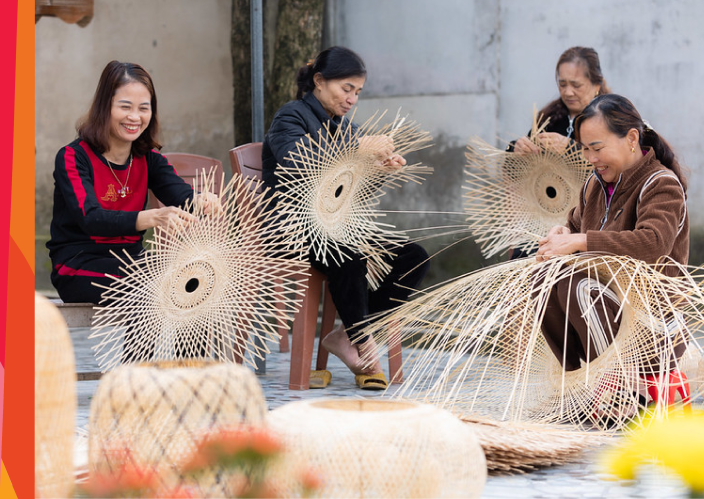Gender justice is central to Oxfam’s work in Vietnam.
We aim to embrace diversity and ensure women’s full and effective participation and equal opportunities for leadership at all levels of decision-making in political, economic, and public life.
We aim for inclusive growth and women achieving equal rights to economic resources, as well as access to ownership and control over land and other forms of property, financial services, inheritance, and natural resources, in accordance with national laws.
Current situation
Despite a strong legal framework on gender equality, women in Vietnam continue to experience discrimination and stereotyping and often lack economic and political opportunities at the household, community, and national levels. More than half of married women have experienced physical, emotional, or sexual domestic violence, and the bulk of unpaid care and household work is taken care of by women. Many women do not have an equal voice in decisions that affect their lives, and there are few female political leaders.
What we want to achieve
Our Gender Equality and Women’s Agency goal seeks for:
- Vulnerable women will have enhanced equity in access to and benefits from economic opportunities, services, and resources
- Changes in gender norms will be achieved that value and recognize the contribution of both men and women
- Policy Engagement
- Women's leadership: More women will take leadership roles in the economy, politics, and society by advocating and investing in sustainable changes that support the advancement of women in all spheres of life and in both private and public spaces to address inequalities and enlisting the support for both women and men.
How we achieve it
We conduct research on topics related to gender equality, discrimination, and women’s leadership. The findings from this research inform our advocacy work to influence policymakers’ perceptions and behavior concerning women’s rights. Multi-stakeholder campaigns and cooperation with media partners help to raise public awareness and change public perception of gender differences and women’s abilities, thereby increasing support for women’s rights.
We also strengthen the social sector's networks working on gender issues, linking gender inequality with other forms of inequality. We link the Vietnamese social sector to international organizations and help to build a broad alliance in support of women’s rights. In addition, we facilitate cooperation and dialogue between government agencies and the social sector, helping to raise the voices of women in policy discussions.
Oxfam uses gender-sensitive design and management tools in all of our projects. The Women Empowerment Mainstreaming, Advocacy and Networking (WEMAN) framework and the Gender Action Learning System (GALS) methodology, are used at the start of project analysis and throughout each project cycle. These tools, an improved form of participatory rural appraisal (PRA), are used separately with men and women to make explicit the imbalance in relationships and workload and reveal the barriers preventing women from truly participating and taking leadership. The WEMAN framework goes beyond promoting women’s agency to build understanding between men and women and work with mixed groups to look for consensus and collaboration. Oxfam’s interventions target changing attitudes and practices of men, as well as a broader public acknowledgment of the value of women’s contributions to equitable and inclusive development.
Our projects
- Project on Supporting Women-led Green Initiatives (PWG) (2024 - 2029)
- Youth Address Gender Stereotypes and Promote Gender Equality in Vietnam (2020 - 2024)
- Support for Women Suffering Gender-Based Violence (GBV) during Covid-19 (2020 - 2022)
- Review of the Gender Equality Law (2021)
- Enhancing Female Participation in Project Choice Through Self-Help Groups in Vietnam (June-December 2021)
- Indigenous Pig - Gender Responsive Equitable Agriculture and Tourism (GREAT) (2019 - 2021)
- Women’s Economic Empowerment through Agriculture Value Chain Enhancement (WEAVE) (2016 - 2019)
Publications
Công việc chăm sóc không lương: Thực trạng và lượng hoá giá trị
Gender Stereotypes against Female Leaders in the Vietnamese Media
Stories
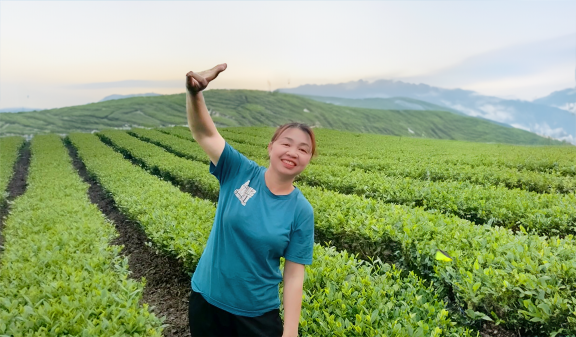
Ms. Thanh pioneering in using VCBG machine in her own green tea production line.
Women at the Forefront of Green Agri-Tech
Ms. Thanh expressed her enthusiasm for the BEST app, a digital marketplace for biomass and mechanical equipment. "It simplifies the procurement process, encouraging more women and farming households to embrace this technology," she says, optimistic about the formation of a green energy community.
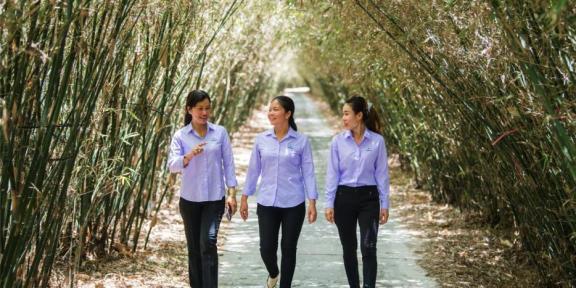
Ms. Van Ngoc Dieu, Deputy Director of Tri Luc cooperative, together with members in the livelihood group
The cultivation of a homeland’s rice brand
Changes in the role of women are visible. Previously, cooperative meetings were mainly attended by men, but “now, both men and women participate, with women accounting for 50% or more. The women gained their confidence,” Ms. Dieu remarked. Instead of their timid former selves that often chose to sit at the rear, the women now actively voice their opinions and defend their point of view.
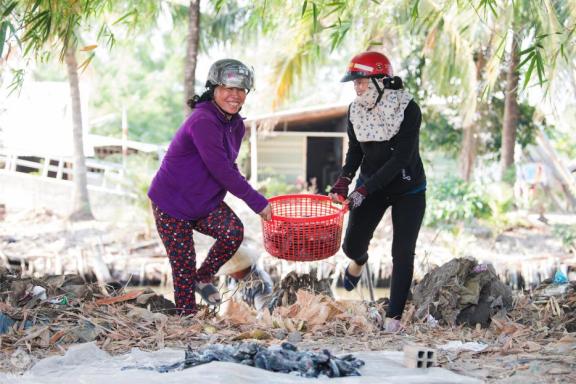
Ms. Nguyen Thi Kim Lam, Deputy Director and Head of the women's livelihood group of Thuan Phat Cooperative is collecting shrimp
The side hustle of a heroine
Ms. Lam's initiative of a secondary livelihood received thorough support from the GRAISEA project, from the concept completion stage to providing equipment and machinery in the production stage. Ms. Lam cheerfully explained: "Making fish cakes with the machines, the process is much more efficient that yields higher-quality outputs."
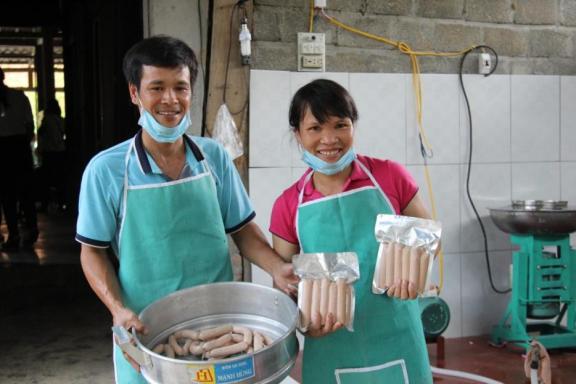
Ms. Tran Thi Lan, a highland farmer from Khoi Bung Village and her husband are showing their home-made products
Why sell it cheap?
A bold idea ignited in Lan's mind: ‘why do I have to sell my pigs at a dumping price while the market demand for sausage is high?’. After one year sharing this idea with project WEAVE, Lan’s business has grown significantly. The range of products is now more than pork sausage but also giò, chả, nem chua…The business has also expanded in production scale and reached new markets. Lan transferred her production knowledge to other women in her village so they can operate the business as a group.
